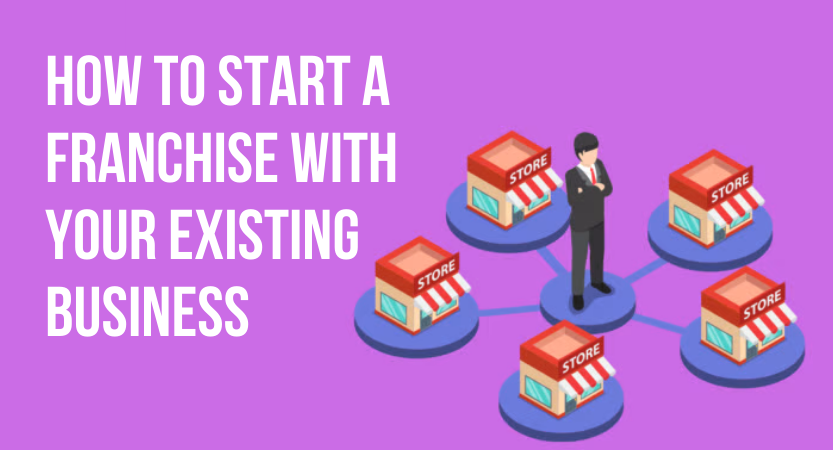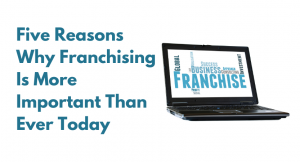Have you been told repeatedly that you should start franchising your company? If that’s the case, franchising might be the way to go!
How Starting a Franchise with Your Business Works
Franchising is the process of opening more locations by selling franchise rights to private investors. These investors will then use your company name and operating system. In exchange for the right to operate a business under the franchise trademark, the franchisee pays an initial franchise fee to the franchisor. In addition, this fee covers business training as well as additional services like site selection assistance. A franchisee will pay a recurring royalty fee for continuous support and training in many systems.
- Advertising
- Marketing
- Sales
- Operational guidance
- Consulting
- Other services
The franchisee provides all of the capital required to launch the business, from your perspective as a franchisor. One of the most significant advantages of franchising is this. Furthermore, the franchisee bears full risk, whether it is success or failure.
What is a Franchise?
A franchise, according to the Federal Trade Commission, is a business relationship with three main components:
- The use of a brand or a common name
- Significant operating support or control, and
- The franchisee’s obligation to pay
Why Should You Start a Franchise?
- Is there a large market for your concept?
- Is your idea original?
- Is it possible to replicate your idea?
- Will your concept be successful?
If you answered yes to these questions, a franchise may be the perfect business model for you.
There are numerous benefits to starting a franchise with your company:
- Money: You use the franchisees’ money to expand.
- Lower Risk: Franchisees are in charge of hiring, leasing, and unit opening costs. The franchisee is responsible for the success or failure of the business.
- Time: Opening new franchises takes much less time than opening company-owned locations.
- People: Franchisees are completely invested and highly motivated business owners, which aids in the smooth operation of management and operations.
Starting as a Franchisor
The early creation of a franchise programme necessitates both time and financial investment. Professional advisors, on the other hand, are often less expensive than building one more company-owned store to help you develop your franchise effectively. Using the services of a reputable and knowledgeable franchise consultant will assist you throughout the process.
Your franchise requires a successful prototype — a working illustration of your company’s potential. Prospects can imagine themselves leading your franchise if it’s a busy, engaging operation. An initial location can also serve as a teaching centre for prospective franchisees and a testing facility for new products, services, or procedures, in addition to demonstrating the sustainability of your concept.
Obtain a trademark. A trademark is a representation of the “brand” — the concept’s complete personality and persona. While many businesses may begin franchising before their trademark is fully registered, you should start the process as soon as possible. New franchisors frequently make the error of failing to get a trademark, therefore the first task is to develop a name that may be endorsed by the United States Patent and Trademark Office.
Make no compromises. A thorough Operations Handbook is also required to include written processes that standardize your methods and serve as your new franchisee training manual. Everything from start-up activities through marketing, employee management, and office operations should be covered. It’s essential to hire a competent technical writer who knows how to write procedures that are simple to understand and follow while adhering to franchise best practices. If you don’t want to hire a professional technical writer, have the document analyzed by an expert franchise consultant or an experienced franchise lawyer.
Make a marketing strategy plan. You’ll have to
- Create marketing materials to aid in the sale of your franchise.
- Hire a franchise development consultant that specialises in creating sales materials to promote your company (e.g. franchise brochure).
Create a Franchise Disclosure Document that follows stringent criteria. A seasoned franchise attorney should prepare this. Before speaking to anyone about your franchise scheme, you must first submit and have the FDD approved by several states that control franchising.
Before you start selling franchises, make sure you’re well-versed in all elements of franchise sales, including the legalities that regulate them. Outsourced franchise sales personnel are used by franchise companies, or franchise sales talent is hired and placed on staff. In either case, a wise franchisor will consider the consequences of their sales and staffing decisions before making them.
Your Franchise Company Development
As your franchise network grows, you’ll be given more responsibilities for looking after your new franchisees. You must supply them with the following:
- Instruction
- Direction
- Inspiration
- Ongoing marketing assistance
- Discounts on purchases from certified providers
- Numerous “back room” services




